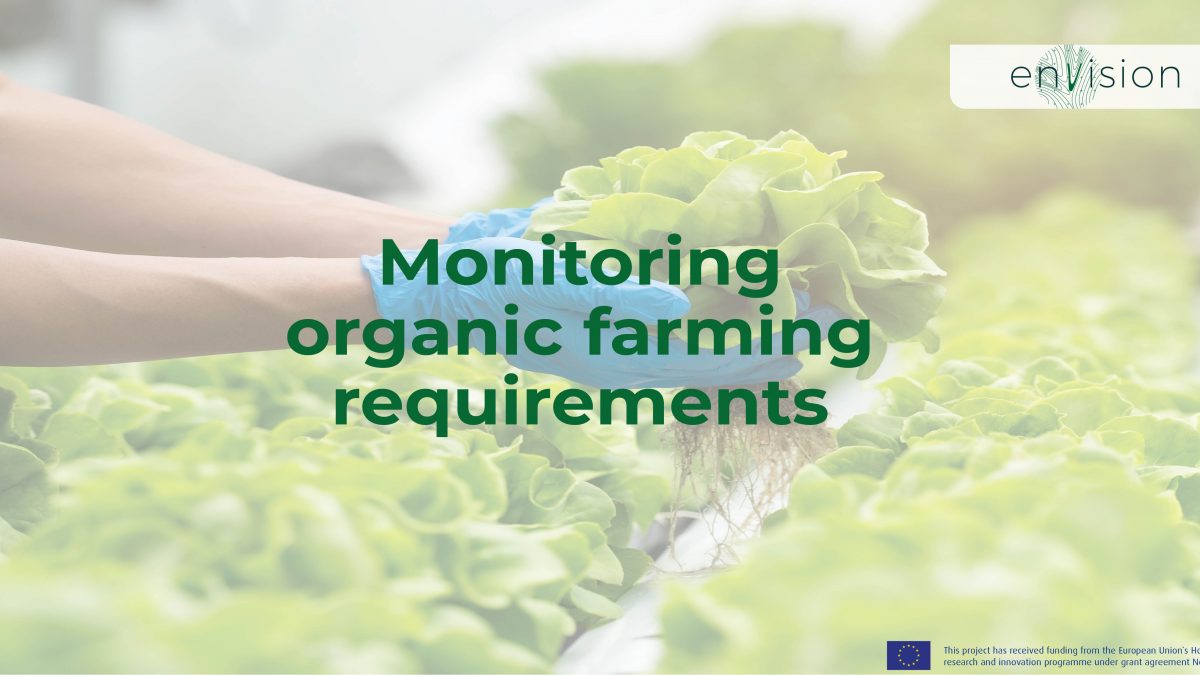ENVISION service supporting the business case of Serbia is:
- Distinction of organic – conventional farming
Plants cultivated under organic and conventional farming principles present bio-chemico-physical differences that can be detectable by satellite imagery, especially during the vegetative and reproductive growth stages. The Identification of organic farming practices service will benefit from these differences to discriminate between organic and non-organic (conventional) crops. The logic behind the service is to identify distinct patterns characterizing the growth and evolution of organic and conventional crops during the growing season, through the use of both high resolution optical and radar satellite images depicting the phenological status of the cultivated parcels.
Machine learning classifiers (MLC) will be trained to understand the temporal and spectral signatures of conventional and organic crops. The accuracy to discriminate between the two agricultural practices (organic, conventional) of both supervised Support Vector Machines (SVM), and Random Forests classifier schemes will be investigated.
This service will provide a fully-automated Organic crop identification service, which aims at identifying whether a particular crop type declared as organic is classified as such, based on a traffic light system.
The service will contribute to replace direct and guide on-field checks for priority control and will result in the reduction of inspections costs and of the Certification Bodies (CBs) administrative burden, thus ensuring targeted and efficient controls and faster delivery of payments/organic certifications to farmers.
The service will exploit a number of EO derived indicators and tools to ensure effective monitoring of the crop condition variability and phenological stages, in both space and time. To ensure high temporal coverage of the data, the system will utilize data from different spaceborne remote sensors, namely the Sentinel-2 and Sentinel-1 missions.

